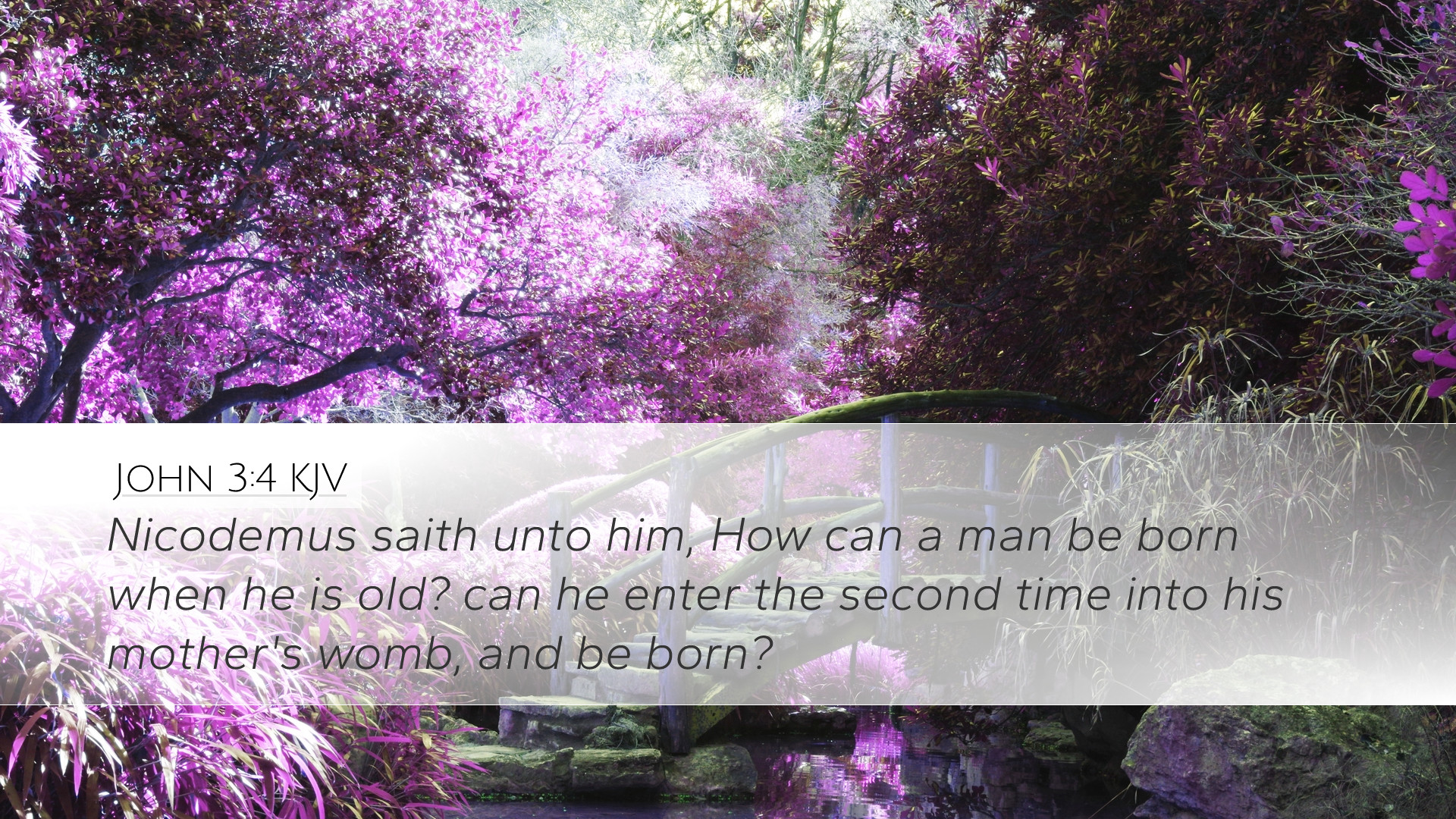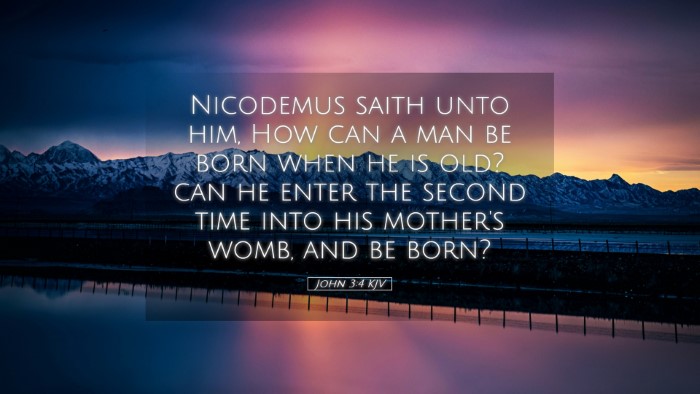Commentary on John 3:4
John 3:4 states, "Nicodemus said to Him, 'How can a man be born when he is old? Can he enter a second time into his mother's womb and be born?'" This verse captures a pivotal moment in the dialogue between Jesus and Nicodemus, where spiritual truths are contrasted with earthly understandings.
Contextual Overview
The Gospel of John, distinct in style and substance from the Synoptic Gospels, frequently unveils deeper theological truths through dialogues. In this passage, Nicodemus, a learned Pharisee and a member of the Jewish ruling council, approaches Jesus by night, illustrating a sense of intrigue and perhaps fear in seeking the truth.
Nicodemus's Question
This verse reveals Nicodemus's struggle to comprehend the profound spiritual revelation that Jesus is presenting. He questions the possibility of being "born again," a concept that stretches beyond his understanding of the physical realm.
Insights from Public Domain Commentaries
-
Matthew Henry:
Henry highlights the notion of spiritual rebirth as a necessity for entering the kingdom of God. He notes that Nicodemus, despite his high status and knowledge, was confounded by the new birth concept, emphasizing that human intellect cannot grasp divine truths without revelation.
-
Albert Barnes:
Barnes expounds on the literal interpretation of Nicodemus's question, pointing out the absurdity of a second physical birth. He underscores the importance of Jesus’ metaphorical teaching, motivating believers to look beyond worldly interpretations and recognize the transformative power of being born of the Spirit.
-
Adam Clarke:
Clarke perceives Nicodemus's question as an expression of his incredulity. He points out that this moment illustrates the transition from the old covenant understanding to the new covenant revelation in Christ. Clarke elaborates on the need for a fundamental change of heart rather than mere compliance to the law.
Theological Implications
John 3:4 raises essential theological questions regarding regeneration and the nature of salvation:
-
Regeneration:
The concept of being "born again" introduces the theological principle of regeneration, pivotal in Christian teaching. This regeneration is a work of the Holy Spirit, indicating a spiritual resurrection rather than a physical rebirth.
-
Human Limitations:
Nicodemus’s query reflects a broader human limitation in grasping spiritual realities. Jesus turns the focus from Nicodemus’s qualifications and knowledge to the divine necessity of rebirth.
-
The Role of Faith:
This passage illustrates the need for faith to comprehend spiritual truths. Nicodemus must move beyond intellectual assent to embrace the transformative work of Christ.
Application for Today’s Believers
For pastors, students, and theologians alike, the dialogue in John 3:4 serves as a reminder of the continual need to seek deeper understanding and revelation. It propels the following applications:
-
The Importance of Inquiry:
Like Nicodemus, believers are encouraged to ask questions and seek understanding, especially when confronted with new teachings that challenge existing views.
-
Encouraging Spiritual Growth:
This passage invites congregations to consider their own spiritual rebirth and growth, prompting evaluation of their relationship with Christ.
-
Crossing Cultural Barriers:
Nicodemus represents those who may be hesitant to approach spiritual truths due to societal or religious norms; believers are challenged to reach out and minister to those in similar predicaments.
Conclusion
The dialogue in John 3:4 between Jesus and Nicodemus is a profound exploration of spiritual truth and revelation. It serves as an eternal reminder to all scholars and believers of the foundational necessity of being "born again" as fundamental to experiencing the fullness of life in Christ. Understanding and embracing this mystery is crucial for the growth of the Church and individual believers today.


